
Your horse is experiencing a colic episode. He seemed fine this morning, but he's pawing in his stall and refusing his evening hay. He doesn't seem all that distressed, his heart rate is 40, and you can hear gut sounds when you listen with your stethoscope-but you've owned horses long enough to know that something isn't right. Your friend gave you a tube of flunixin but you don't know how much to give. Time to call the vet!
Scenario #1: You're an experienced horse person and you do all of your own routine vaccinations. Your horse has always been healthy-until today! The last time you called a veterinarian was four years ago when your horse had his teeth done. You call that vet's emergency number, and when they call you back you tell them you think your horse's symptoms are mild. You just need to know how much medication you should give. The answer? "I can't give you that advice without examining your horse."
Scenario #2: You have owned horses forever, but still make sure you see your veterinarian at least once a year for routine vaccinations and a general exam. Your vet last saw your horse three months ago. You call to report on your horse's symptoms, and your vet agrees-it sounds like a mild colic episode. They advise you to give a small dose of flunixin, keep a close eye on your horse, and check back in 45 minutes unless his signs get worse.
This story is from the {{IssueName}} edition of {{MagazineName}}.
Start your 7-day Magzter GOLD free trial to access thousands of curated premium stories, and 9,000+ magazines and newspapers.
Already a subscriber ? Sign In
This story is from the {{IssueName}} edition of {{MagazineName}}.
Start your 7-day Magzter GOLD free trial to access thousands of curated premium stories, and 9,000+ magazines and newspapers.
Already a subscriber? Sign In

The Horse
LIFE TAKES US DOWN different paths, but I seem to be on just one, which is with the horse.
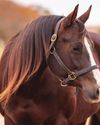
Decoding the Diseases Examined by AQHA's Six-Panel Test
The six-panel test is a diagnostic tool used to assess the genetic predispositions of horses. It's meant to discover if a horse has or is a carrier for certain hereditary diseases and traits.
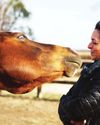
Love is Good
All horses are assured a hopeful, compassionate plan of care at This Old Horse, a program that helps not only horses but people, too.

HORSE PACKING 101
Take your trail riding to the next level with nature-filled adventures in the back or front country.

NEW HORSE; NEW PROBLEMS
Anew horse can bring excitement and energy to the barn, and even reinvigorate your passion. However, there are also a myriad of new problems that can come with a new horse, so learn how to introduce him properly to avoid these common issues.
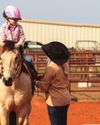
First-Timer Tips
Heading to a young rider's first event with their horse can be intimidating. Use these myths and truths to make it smoother sailing for yourself and your young rider.
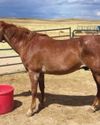
Re-Rescued: Aslan's Story
One special gelding learns about three different types of love during his rescue journey.
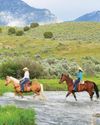
The Country's Hottest Horse Motels
Take your next trail-riding adventure to the next level by staying at one of these six horse motels across the United States.
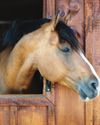
Outbreak! What We've Learned
Learn how disease outbreaks in recent years have changed the horse industry, and why it's so important to play your part when it comes to disease prevention efforts.

TRAINING THE SENSITIVE HORSE
Shift your mindset and grow your sensitive horse's pressure-handling skills to improve his confidence and your riding enjoyment.